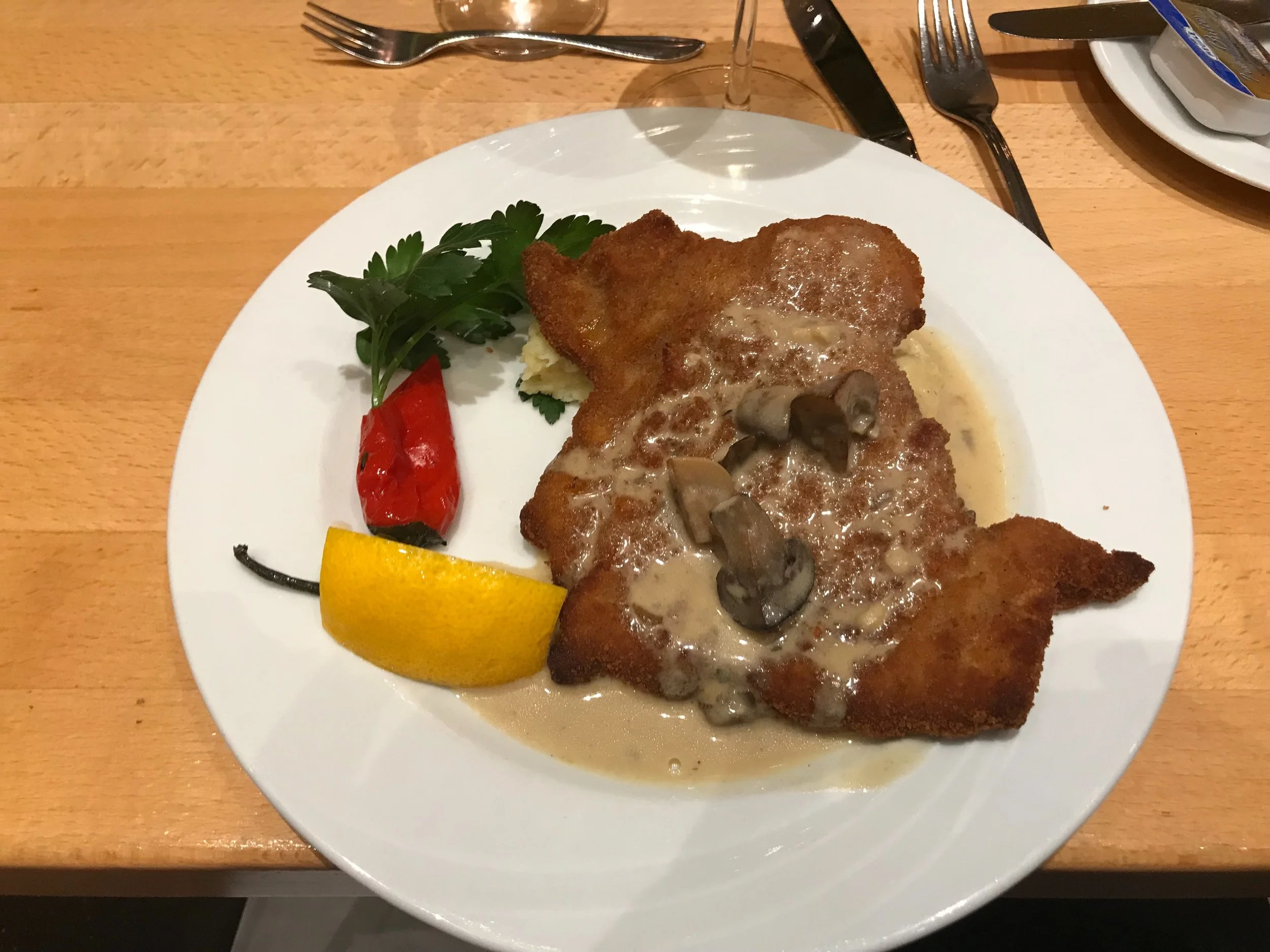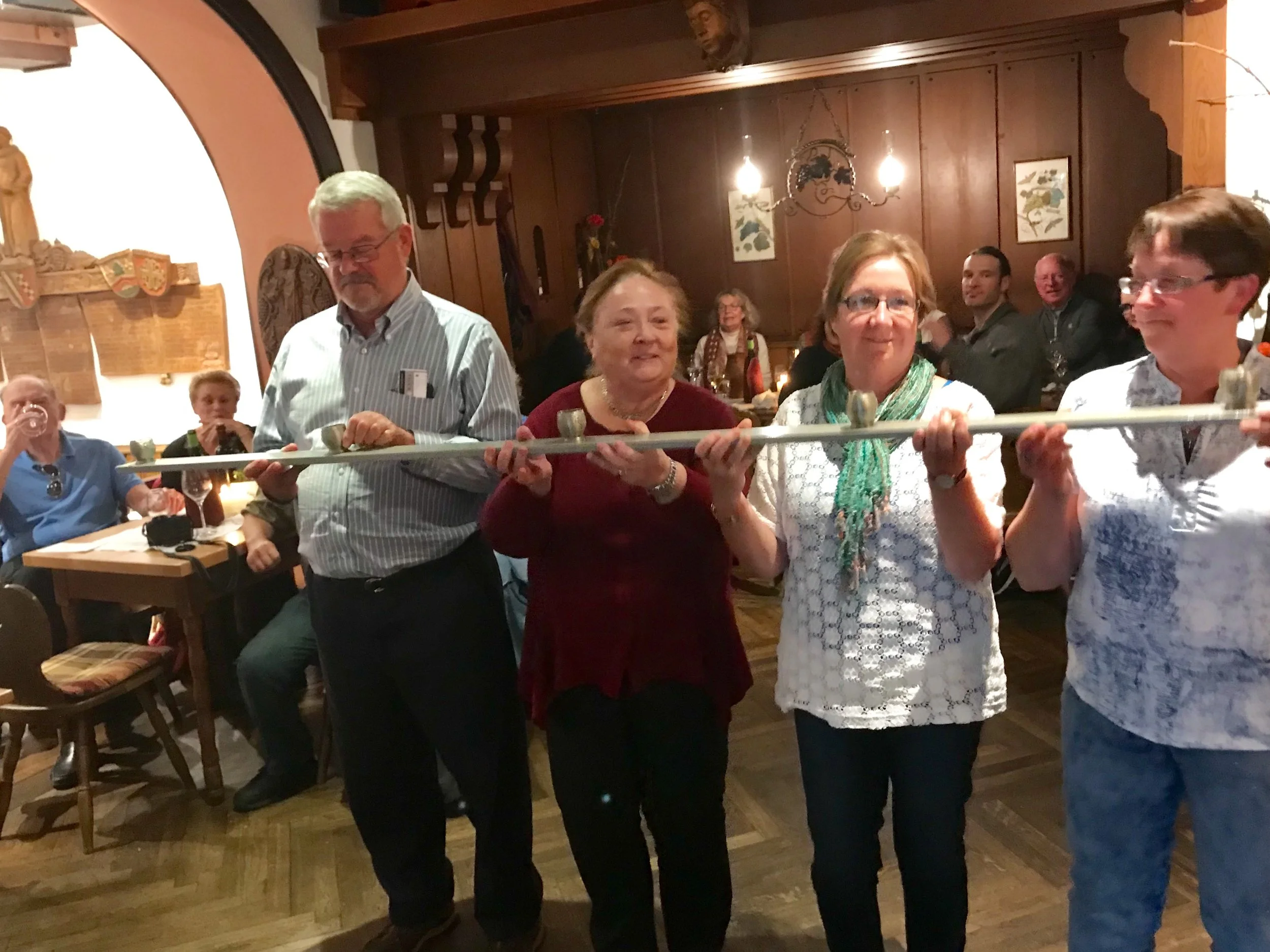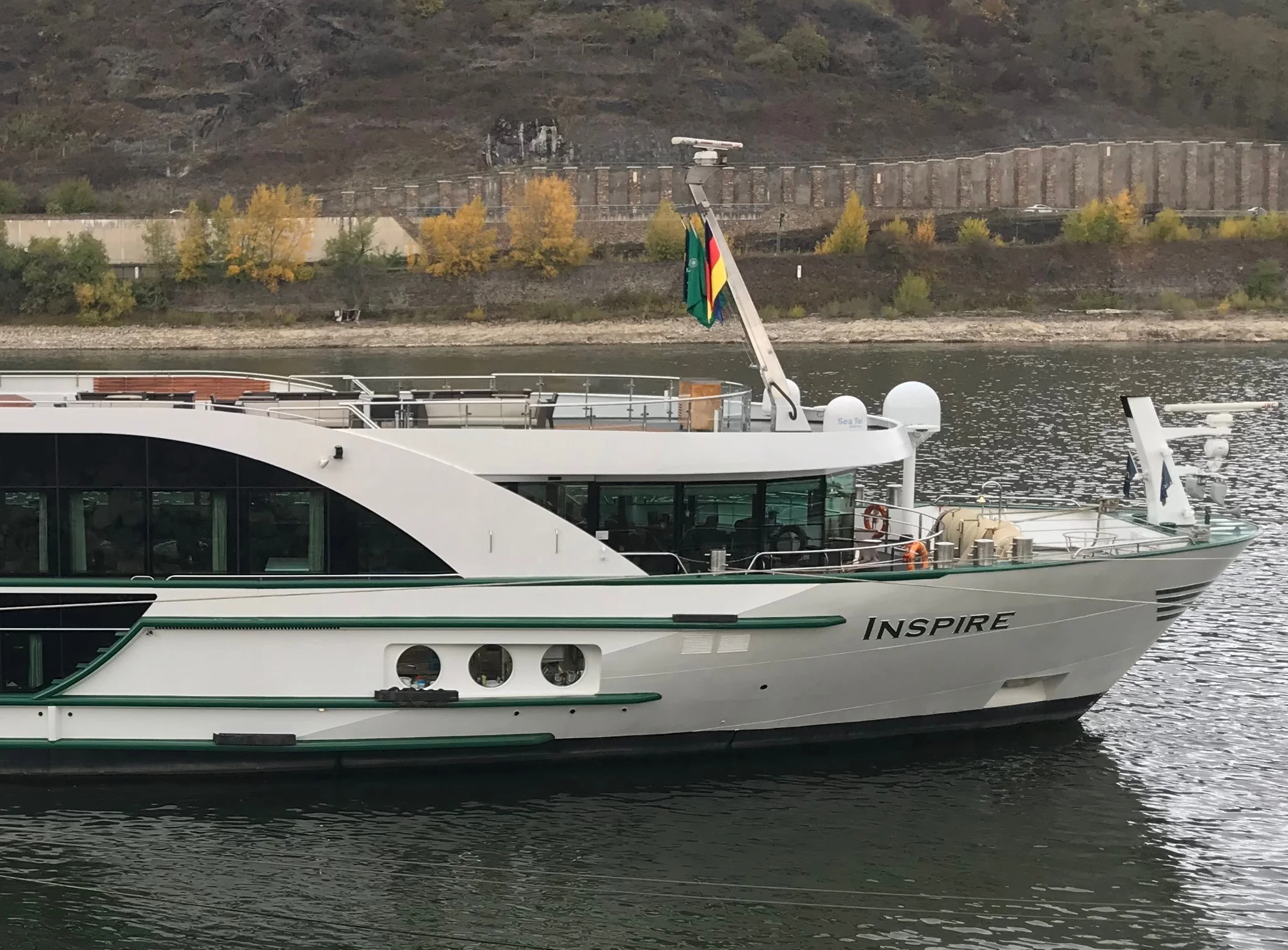Rudesheim - European Vacation - Day 8
On Saturday we departed the ms Grace at 9:30 am to visit Rudesheim. Another group departed at 8:15 am for a bicycle tour on Mainz. After our tour of the Musik Kabinett with its collection of massive music making machines such as carillons and harmoniums we will have wiener schnitzel (veal) for lunch at the historic Rudesheimer Schloss. Germany has a wide range of cuisine which includes pork, swine, pig and occasionally veal.
FC3E8881-82A3-42E2-866D-E9D34E469699
B9507B8D-9D8E-44F6-84A7-390F9656AC0B
612A0CA5-9F17-4DBD-AECA-F178D353B1BF
On Saturday we departed the ms Grace at 9:30 am to visit Rudesheim. Another group departed at 8:15 am for a bicycle tour on Mainz. After our tour of the Musik Kabinett with its collection of massive music making machines such as carillons and harmoniums we will have wiener schnitzel (veal) for lunch at the historic Rudesheimer Schloss. Germany has a wide range of cuisine which includes pork, swine, pig and occasionally veal...We will board the ms Inspire in Andernach which is located at the confluence of the Rhine and Moselle rivers.All went as planned. We arrived in Rudesheim and took the German version of the conch train up the hill from the parking lot to the Musik Kabinett. It has the most amazing collection of data driven (scrolls) music machines I have ever seen. Most were built in the late 1800’s and were originally designed to be operated by hand by turning a crank handle...Priscilla and I ducked out of the Musik Kabinett tour part way through so we could take the gondola to the top of the hill for an amazing view of the vineyards and river valley. There is a large monument to Kaiser Wilhelm II at the top of the hill...
Wilhelm II
(Friedrich Wilhelm Viktor Albert; 27 January 1859 – 4 June 1941) was the last
(Kaiser) and
, reigning from 15 June 1888 until
on 9 November 1918. He was the eldest grandchild of
of the United Kingdom and related to many monarchs and princes of Europe, most notably, King
of the United Kingdom and
.
Wilhelm II

Portrait of Wilhelm II in 1902, by T. H. Voigt
Acceding to the throne in 1888, he dismissed the chancellor, Otto von Bismarck, in 1890. He also launched Germany on a bellicose "New Course" in foreign affairs that culminated in his support for Austria-Hungary in the crisis of July 1914 that led in a matter of days to the First World War.Bombastic and impetuous, he sometimes made tactless pronouncements on sensitive topics without consulting his ministers, behavior which culminated in a disastrous Daily Telegraph interview in 1908 that cost him most of his influence.[1] His leading generals, Paul von Hindenburg and Erich Ludendorff, dictated policy during the First World War with little regard for the civilian government. An ineffective war-time leader, he lost the support of the army, abdicated in November 1918, and fled to exile in the Netherlands..
E89C8165-6F17-4CDA-A49C-DF54FEAB4B47
B6435A91-2E58-44F3-B889-B6C4D7EC936B
870DEC30-1DC4-432D-96C2-25BA4024FC43
8CABAC4A-3A77-460D-9AFE-9E204073DB7D
A26C5597-6375-4EF3-B237-EC9975955A52








